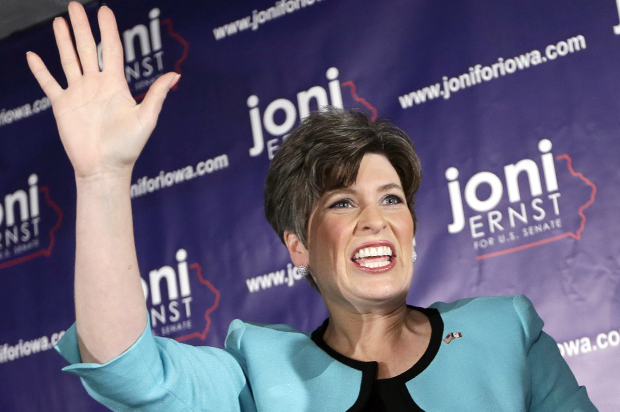Two days before early voting begins in Iowa, Democrats are touting a nearly 2-to-1 lead in absentee ballot requests in the Senate battleground state.
The Democratic Senatorial Campaign Committee told the New York Times’ new First Draft blog that the party has outpaced the Republicans in absentee ballot requests, 58,000 to 31,000.
Iowa is home to one of the most closely contested Senate races of the 2014 midterms, pitting Democratic Rep. Bruce Braley against Republican Joni Ernst. According to RealClearPolitics’ average of polls in the state, Braley leads Ernst by just 0.1 percentage points.
The contest to fill retiring Democratic Sen. Tom Harkin’s seat wasn’t expected to be particularly difficult for Democrats to win, but early stumbles by Braley and Ernst’s consolidation of both Tea Party and establishment GOP support have helped make the race a toss-up. While Republicans have multiple paths to a Senate majority without winning the Iowa race, the state is a must-win for Democrats hoping to retain their edge in the chamber.
More from the New York Times’ report:
The committee says its program in Iowa has focused in large part on identifying and mobilizing unaffiliated voters who are likely to support its candidate, Representative Bruce Braley, in his race against State Senator Joni Ernst, the Republican nominee.
The goal is to expand the universe of potential Democratic voters, and party officials said they believed that 73 percent of the 23,000 unaffiliated voters who had requested ballots were likely to support Mr. Braley.
Moreover, roughly 92 percent of the requested Republican ballots went to party supporters who voted in the 2010 midterm elections, compared with about 64 percent of Democrats who requested ballots. Drawing from that voting history, Democratic committee members contend that a significant proportion of Democratic absentee ballot requests are from voters who haven’t typically voted in off-year elections.

